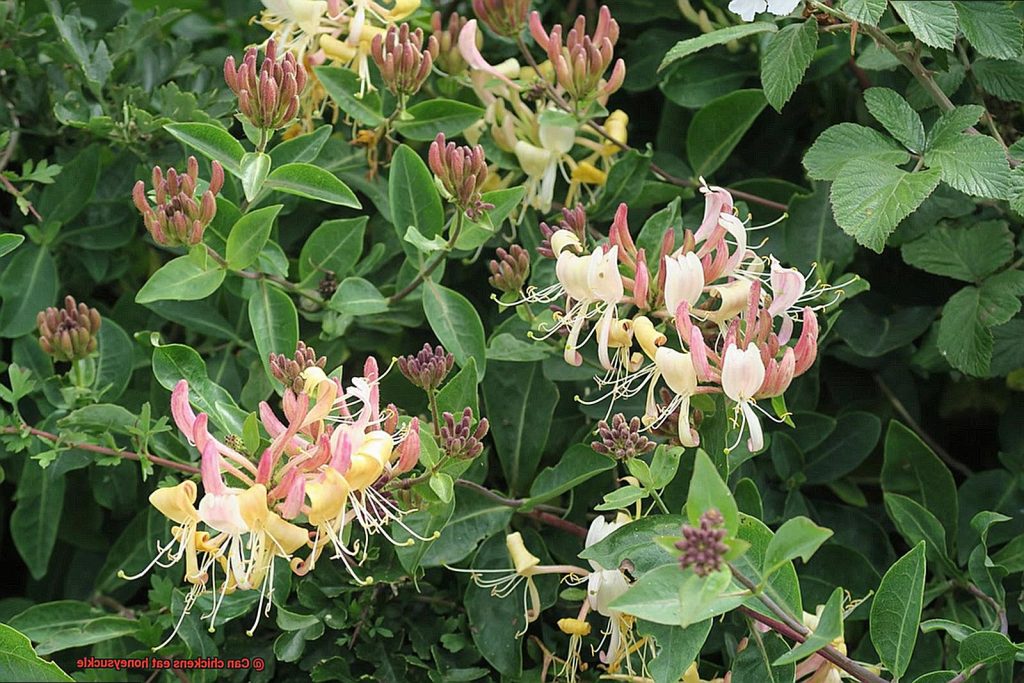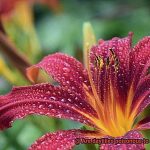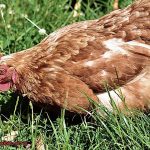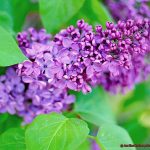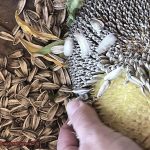Are you looking for a new treat to spoil your backyard chickens? These curious creatures love nothing more than pecking and scratching around in search of something tasty. If you have honeysuckle growing in your garden, you might be tempted to share some with them. But before you do, it’s important to ask: Can chickens eat honeysuckle?
Honeysuckle vines are a common sight in many backyards, and their colorful and fragrant flowers attract all sorts of wildlife, including hummingbirds, bees, and butterflies. However, not all flowers are created equal when it comes to being chicken-friendly. Some can be toxic and cause mild to severe health problems for your feathered friends. As a responsible chicken owner, it’s up to you to ensure that their diet is varied, nutritious, and safe.
In this post, we’ll explore the benefits and risks of feeding honeysuckle to chickens. We’ll take a closer look at the different parts of the honeysuckle plant and how they affect birds. Plus, we’ll provide tips on how to cultivate a chicken-friendly garden that both you and your flock will love. By the end of this post, you’ll have a better understanding of whether or not honeysuckle is a good choice for your chickens’ diet.
Let’s dive in now.
What is Honeysuckle?
Contents
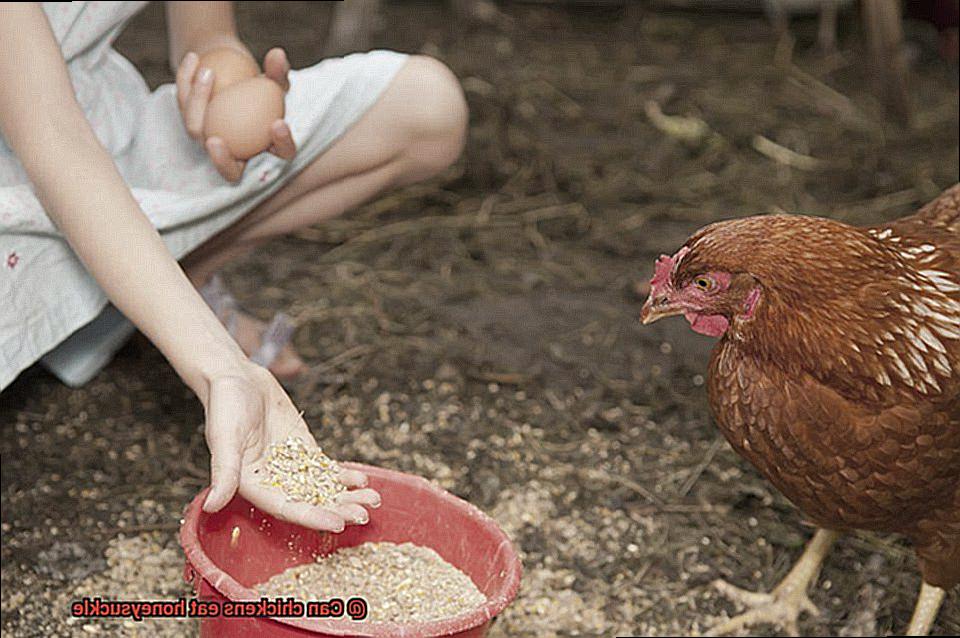
Let me introduce you to the wonderful world of honeysuckle. Honeysuckle, also known as Lonicera, is a fragrant and ornamental flowering plant native to the Northern Hemisphere. This climbing or trailing vine can grow up to 30 feet tall and produces tubular-shaped flowers that come in a variety of colors, including white, yellow, pink, red, and orange.
Belonging to the Caprifoliaceae family, which includes around 200 species of shrubs and vines, honeysuckle is a plant with many benefits. Aside from its aesthetic value, it has been used for medicinal purposes for centuries due to its anti-inflammatory and antioxidant properties. It has been known to help treat a range of ailments such as colds, coughs, and fever.
However, it’s essential to practice caution when using honeysuckle for any purpose. In large quantities, honeysuckle can be toxic. Additionally, if feeding honeysuckle to chickens, make sure it hasn’t been treated with pesticides or chemicals that could harm them.
Luckily, chickens can enjoy the deliciousness of this plant in moderation. As an omnivorous animal, chickens will happily munch on honeysuckle, but excessive consumption may cause digestive problems such as diarrhea. So, remember to feed honeysuckle to your feathered friends in moderation.
Are Chickens Omnivores?
They love to consume both plants and animals. In their natural habitat, chickens are known to forage for food and will eat a mix of insects, seeds, and vegetation. However, when in captivity, they often have limited access to commercial feed.
To keep chickens healthy and productive, it’s imperative that they have a balanced diet filled with protein, vitamins, minerals, and carbohydrates. Although most of their protein comes from animal sources such as insects, they can also obtain it from plant-based sources like legumes and seeds.
Now let’s talk about honeysuckle. This plant is both fragrant and ornamental, with tubular-shaped flowers in a variety of colors. While honeysuckle has some medicinal benefits such as anti-inflammatory and antioxidant properties, it’s essential to be cautious when feeding it to your chickens.
While some species of honeysuckle are safe for chickens to consume, others contain toxins that could harm them. That’s why it’s essential to research the specific species of honeysuckle before feeding it to your chickens.
Is Honeysuckle Toxic to Chickens?
Honeysuckle is a delightful plant that can add a touch of charm and beauty to any garden or yard. However, as a chicken owner, you may be curious about whether this lovely plant is safe for your feathered friends to eat. The answer isn’t straightforward, as some types of honeysuckles can be toxic to chickens if consumed in large amounts.
The toxic compound found in honeysuckle is called saponin, which can cause vomiting, diarrhea, and even death in chickens if ingested in high doses. This compound is mainly found in the leaves, stems, and flowers of certain varieties of honeysuckle plants. Therefore, it’s crucial to correctly identify the specific type of honeysuckle plant in your yard or pasture before allowing your chickens to graze on it.
While Japanese honeysuckle is safe for chickens to eat in moderation, it’s important to keep in mind that not all varieties are safe for consumption. Thus, it’s always better to err on the side of caution and avoid feeding your chickens any part of the honeysuckle plant unless you’re sure it’s safe.
Feeding your chickens a varied diet that includes fruits, vegetables, and grains is always the best option for keeping them healthy and happy. And while honeysuckle may be tempting to feed your feathered friends because of its sweet fragrance and beautiful blooms, it’s essential to prioritize their safety and well-being.
Health Benefits of Honeysuckle for Chickens
That’s right. Honeysuckle is not just a pretty and fragrant plant, but it also has essential nutrients and antioxidants that can improve the immune system and overall health of chickens.
The anti-inflammatory properties of honeysuckle are particularly helpful for chickens with respiratory infections or other inflammatory conditions. Honeysuckle contains various compounds that have potent anti-inflammatory effects, which can reduce inflammation in chickens’ bodies.
Honeysuckle is also packed with antioxidants that can protect chickens’ cells from damage caused by free radicals. These antioxidants can prevent diseases like cancer, heart disease, and other chronic conditions in chickens.
Honeysuckle’s antibacterial properties can prevent bacterial infections in chickens. It can also improve digestion and nutrient absorption in chickens, leading to better growth and development.
While honeysuckle is safe for chickens to consume, it’s essential to feed them in moderation. Too much of anything can be harmful to their health. So, make sure to include honeysuckle as part of their balanced diet and watch your feathered friends thrive.
Moderation is Key When Feeding Honeysuckle to Chickens
While honeysuckle is generally safe for these feathered friends to feast on, overindulging in it can be harmful. This is primarily due to the presence of saponins – natural compounds that can cause gastrointestinal distress if consumed in large quantities.
But fret not, because keeping your chickens healthy and happy while enjoying the benefits of honeysuckle is easy. The answer lies in moderation. Rather than relying solely on honeysuckle as their main food source, offer it as a treat or supplement to their regular diet. You can also mix honeysuckle leaves and flowers with other herbs and plants to create a more balanced and nutritious diet for your chickens.
In addition to moderating the amount of honeysuckle that your chickens consume, it is also important to ensure that the plant has not been treated with any pesticides or herbicides. These chemicals can prove detrimental to the health of your chickens, leading to serious health problems or even death. So, if you’re unsure about the safety of a particular honeysuckle plant, it’s best to steer clear of feeding it to your beloved birds altogether.
Is it Safe to Feed Pesticide-Treated Honeysuckle to Chickens?
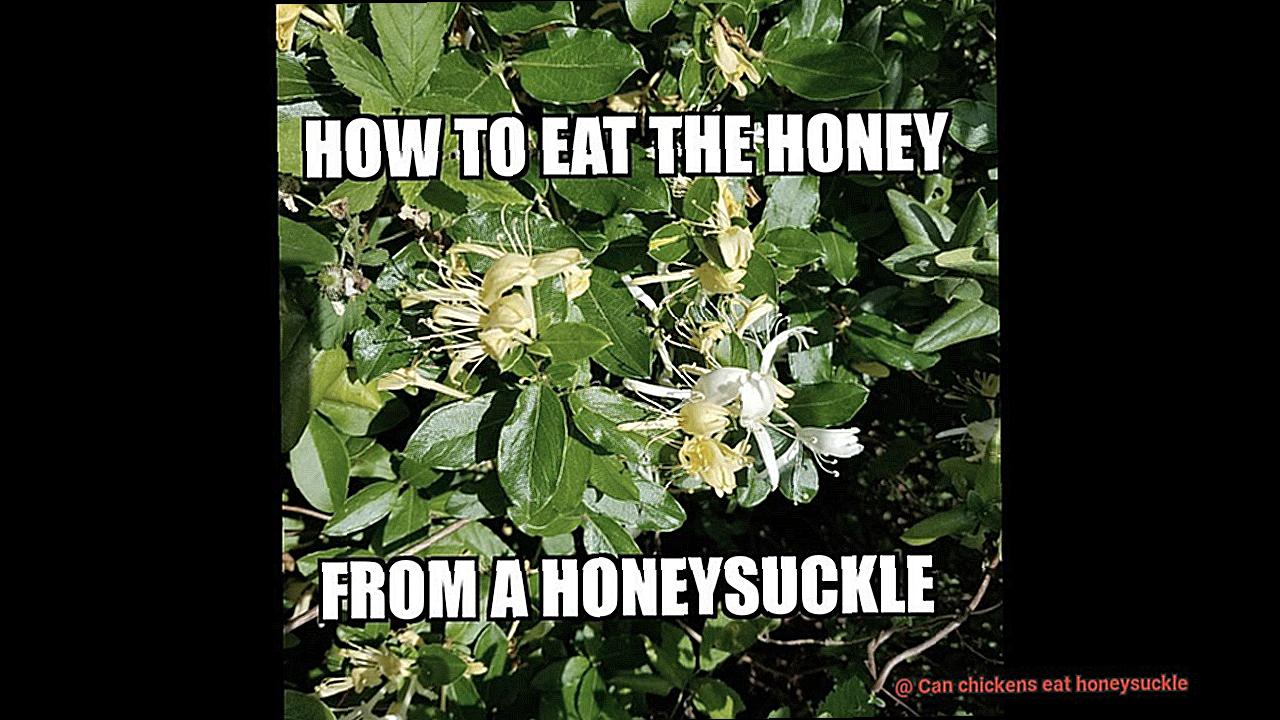
As a doting chicken caregiver, you want to provide your feathered friends with the best possible care. One way to do that is by offering them delicious treats like honeysuckle. However, before you do so, it’s important to consider whether or not the plant has been treated with pesticides.
Pesticides are chemicals used to protect crops from pests and diseases. While they can be effective in controlling these issues, they can also be harmful to animals and humans if ingested. If you have used pesticides on your honeysuckle, it’s not safe to feed the plant to your chickens. The toxic chemicals in pesticides can be absorbed by the plant and then ingested by the chickens when they eat it. This can lead to respiratory issues, digestive problems, and even death.
Even if you haven’t used pesticides on your honeysuckle, there’s still a risk of contamination if your plant has been exposed to nearby pesticide use. Pesticides can drift through the air or be carried by water, contaminating plants that are not directly treated.
To ensure the safety of your beloved chickens, it’s best to avoid feeding them honeysuckle that may have been exposed to pesticides. Instead, consider providing them with other safe treats such as fruits, vegetables, and herbs that have not been treated with chemicals.
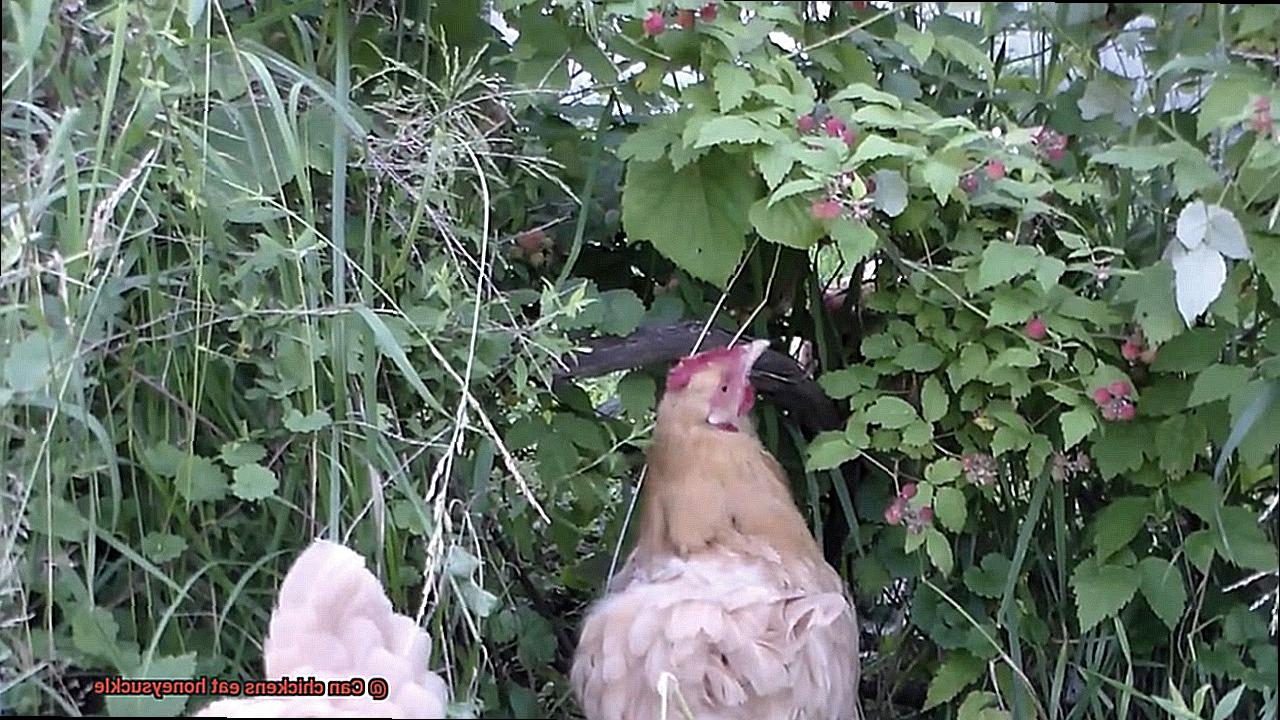
If you do want to feed your chickens honeysuckle, make sure it’s from a trusted source or that you’ve grown it yourself without the use of pesticides.
oKuHo2N9PcE” >
Conclusion
In summary, honeysuckle can be a delectable delicacy for your backyard chickens, but it’s crucial to exercise caution when feeding it to them. While some species of honeysuckle are safe in moderation, others contain toxins that could harm your feathered pals.
As omnivores, chickens require a well-balanced diet filled with protein, vitamins, minerals, and carbohydrates. Honeysuckle boasts several health benefits for chickens due to its anti-inflammatory and antioxidant properties. However, overindulgence may lead to digestive woes like diarrhea.
When offering honeysuckle to your flock, remember that less is more. Use it as a supplement or treat alongside their regular diet and ensure the plant is pesticide-free. It’s also vital to research the specific species of honeysuckle before letting your chickens munch on it.
Besides honeysuckle, there are plenty of other safe treats you can give your clucking companions like fruits, veggies, and herbs free from chemicals.

